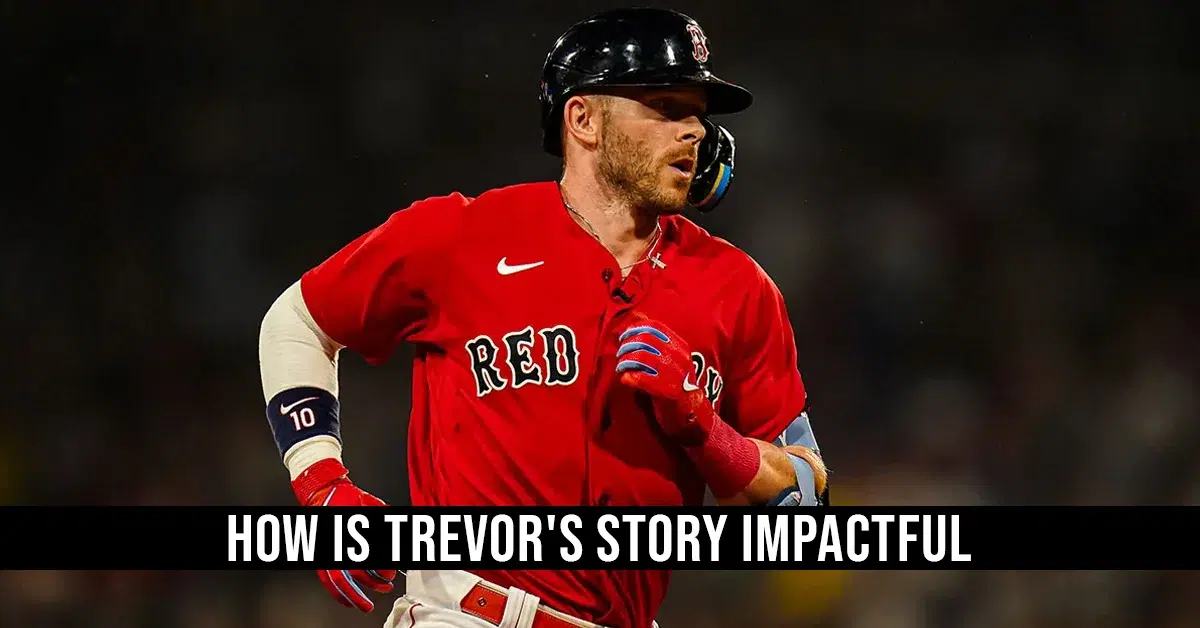How Is Trevor’s Story Impactful narrative that has captivated readers and audiences around the world. From the moment it was first published, Trevor Noah’s memoir, Born a Crime: Stories from a South African Childhood, became an instant bestseller, praised for its raw honesty, humor, and depth of insight into the complexities of race, identity, and social justice. As the host of The Daily Show, Noah has become a global voice for tolerance, understanding, and social change. His story provides essential lessons that resonate with people from all walks of life, teaching us about resilience, the power of humor, the struggles of apartheid, and the transformative nature of education.
In this article, we’ll explore the key lessons and insights drawn from Trevor’s life story, how it relates to broader social issues, and why his journey is so impactful for today’s readers and viewers.
ALSO READ: Exploring Dalio Decision Subplots: A Guide To Smarter Decisions
Overcoming Adversity: A Story Of Resilience
Trevor Noah’s life, marked by hardships and injustices, is ultimately one of resilience. Born in 1984 in apartheid South Africa, his existence was inherently challenging due to the segregationist policies of the time. As the child of a black Xhosa mother and a white Swiss father, Trevor was considered “colored” under the apartheid regime, a status that made him an outsider in both the black and white communities.
The term “born a crime” refers to the fact that his parents’ interracial relationship was illegal during apartheid. Noah’s mother, Patricia, played a crucial role in shaping his character, teaching him how to navigate the difficulties of living in a racially divided country. Despite the obstacles, Noah’s determination to rise above the situation and pursue his dreams shines through. His story teaches us that regardless of how dire the circumstances may seem, resilience, hope, and determination can help us overcome even the greatest challenges.
Key Takeaway:
Trevor’s ability to keep going despite seemingly insurmountable obstacles highlights the importance of resilience. In life, no matter the challenges, perseverance and a strong sense of purpose can help you navigate and overcome adversity.
The Power Of Humor: Finding Laughter In The Darkest Times
One of the most remarkable aspects of Trevor Noah’s story is his use of humor to cope with hardship. From a young age, he learned to laugh in the face of adversity, using humor as both a coping mechanism and a tool for connection. His witty anecdotes in Born a Crime demonstrate how humor helped him navigate complex racial and social dynamics.
Whether he was dealing with the brutality of apartheid or the challenges of being raised in a poor neighborhood, Trevor’s humor allowed him to distance himself from the pain, find joy in small victories, and even connect with people from different backgrounds. He explains that humor allowed him to break down barriers and communicate with people who otherwise might not have understood his struggles.
Trevor’s storytelling is both comedic and poignant, as he shares painful moments with a light touch, showing how laughter can be a way of processing trauma and bringing people together.
Key Takeaway:
Trevor’s story highlights the importance of humor as a survival tool. It teaches us that even in the darkest of times, laughter can be a powerful form of resistance, a means to cope, and a bridge to empathy.
The Complexity Of Identity: Navigating Race And Belonging
Growing up in a divided society, Trevor struggled with his identity. As a mixed-race child, he didn’t fit neatly into the boxes that apartheid’s rigid racial laws imposed. He was rejected by both the black and white communities, and he struggled to understand where he belonged.
Noah’s experience is a testament to the complexity of identity. His upbringing in a country where race determined every aspect of life made him acutely aware of his outsider status. His story shows that identity isn’t just about how others see you, but also about how you see yourself and how you negotiate belonging in a divided world.
Throughout Born a Crime, Noah reflects on his evolving understanding of race and identity. He provides a nuanced perspective on what it means to be “othered” and challenges the societal constructs of race and ethnicity.
Key Takeaway:
Trevor’s journey teaches us that identity is complex and multi-layered. It’s not defined by labels but by individual experiences and the way we navigate a world that constantly attempts to categorize us. Embracing complexity and learning to be comfortable with uncertainty can foster a deeper sense of self.
The Importance Of Education: Unlocking Opportunities For Change
Education plays a pivotal role in Trevor Noah’s story. His mother, Patricia, was a staunch advocate for learning and instilled in Trevor the importance of education as a tool for liberation. Despite the harsh conditions of apartheid, Patricia ensured that Trevor had access to education, even if it meant defying societal norms.
Trevor describes his mother as a fierce, independent woman who refused to be restricted by the limitations of the apartheid system. She believed that education was the key to breaking the cycle of poverty and oppression. Through her support, Trevor gained access to books, knowledge, and a broader worldview. He used this foundation to pursue his dreams, eventually becoming a global figure.
Noah’s story reinforces the power of education to transform lives and challenge systemic inequality. It underscores the idea that education isn’t just about academic achievement, but about broadening perspectives, fostering critical thinking, and empowering individuals to challenge the status quo.
Key Takeaway:
Trevor’s relationship with education demonstrates how it can be a powerful tool for social change. Education opens doors, nurtures critical thinking, and equips individuals to challenge and dismantle oppressive systems.
Social Injustice: The Impact of Apartheid and the Legacy of Racism
The historical context of apartheid South Africa is crucial to understanding Trevor’s life story. Apartheid was a system of institutionalized racial segregation that deprived non-white South Africans of basic rights, opportunities, and freedoms. Trevor’s experiences during this period highlight the pervasive and systemic nature of racism and how it shaped the lives of millions of people.
His mother, Patricia, was an unwavering advocate for justice and equality, and much of Trevor’s awareness of social issues stems from her teachings. While Born a Crime focuses heavily on the personal, it also paints a picture of the broader societal landscape in which Trevor grew up, offering insights into the long-lasting effects of systemic racism.
By weaving personal anecdotes with commentary on apartheid, Trevor provides readers with a powerful reminder of the lasting impact of racial injustice. His reflections on the present-day racial inequalities in both South Africa and the U.S. offer important insights into how history shapes the social fabric of nations.
Key Takeaway:
Trevor’s memoir underscores the importance of understanding the history of social injustice. It calls attention to the deep and enduring legacies of racism, urging readers to confront these issues and work toward a more just society.
A Mother’s Love: The Influence Of Patricia Noah
One of the most central and moving aspects of Trevor’s story is his relationship with his mother. Patricia Noah’s unwavering love, strength, and determination had a profound impact on Trevor’s life. She was a single mother who faced many challenges, yet she ensured Trevor’s safety, happiness, and success.
Patricia’s unconventional parenting methods are showcased throughout the book. She raised Trevor in a way that encouraged him to think critically, question authority, and value his self-worth despite the oppressive system around him. She also made sure to expose him to a wide range of experiences, from taking him to church to introducing him to literature and education.
In many ways, Patricia was a role model, showing Trevor the power of agency and resilience. She stood as a beacon of strength and love in the face of adversity, teaching him invaluable lessons about independence, courage, and the power of education.
Key Takeaway:
Patricia Noah’s love and influence remind us of the crucial role mothers (and caregivers in general) play in shaping the lives of their children. Her unwavering support and strength offer a lesson in how love can transcend hardship and transform lives.
ALSO READ: Transform Virtual Conferences With Lync Conf Game Mods
FAQs
What is the main message of Trevor Noah’s Born a Crime?
The main message of Born a Crime is about overcoming adversity, resilience in the face of systemic oppression, and the importance of understanding one’s identity. Through humor and personal anecdotes, Trevor Noah highlights the challenges he faced growing up in apartheid South Africa and the enduring impact of those experiences on his worldview. The book ultimately emphasizes the transformative power of love, education, and the human spirit in overcoming injustice.
How did humor help Trevor Noah cope with his challenging circumstances?
Humor played a significant role in helping Trevor Noah cope with the harsh realities of apartheid. It allowed him to navigate difficult situations, connect with others, and process painful experiences. Through humor, Trevor found a way to break down social barriers and transform challenging moments into opportunities for laughter, thereby managing trauma and creating bonds with people from diverse backgrounds.
What role did education play in Trevor Noah’s life?
Education was a fundamental tool for Trevor Noah’s personal development and empowerment. His mother, Patricia, made sure Trevor received an education despite the obstacles posed by apartheid. Through education, Trevor gained a broader perspective, which helped him escape the limitations imposed by his environment and eventually pursue a career in comedy and activism.
How does Trevor Noah’s memoir relate to contemporary issues of race?
Trevor Noah’s memoir explores the complexities of race and identity, providing insight into how racism operates within a society. His story highlights the enduring effects of apartheid, but it also connects these historical issues to contemporary racial struggles around the world, making it a powerful commentary on the persistence of racism and social injustice.
What can readers learn from Trevor Noah’s relationship with his mother?
Trevor’s relationship with his mother, Patricia, is a central theme in his memoir. Readers can learn about the power of love, resilience, and sacrifice. Patricia’s influence taught Trevor essential life skills, including critical thinking, independence, and the importance of standing up for what is right. Her unwavering support was instrumental in shaping Trevor into the person he became.










